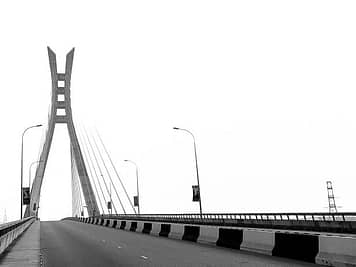
In light of the alarming rise in insecurity, marked by a surge in kidnappings and attacks terrorizing citizens, it’s crucial to address the serious questions being posed by Nigerians.
The burning question on everyone’s mind is: “What exactly is happening in our country?”
Amidst growing fear and heinous crimes undermining Nigeria’s stability and security, Nigerians expect the government to establish a sense of safety. The increasing loss of innocent lives in Nigerian communities is not only a tragedy but also hinders international economic investment, which thrives in stable political climates.
Nigerians are constantly living in fear, questioning the current government’s commitment to prioritizing national security. The government appears to have let down its citizens yet again.
Following the tragic killing of over 200 people in Plateau State during the Christmas season and the daily occurrence of kidnappings, Nigerians are now burdened with finding large sums of money for ransom payments. This situation prompts the critical question: What future lies ahead for Nigeria?
The primary responsibility of any government is to protect its citizens and their property, including implementing effective security strategies for national safety.
Regrettably, Nigeria currently faces a situation where terrorism and kidnapping are rampant, even in the Federal Capital Territory, the nation’s seat of power.
The government must take decisive action to combat this pervasive insecurity. How can economic development and growth be fostered when both Nigerians and foreign investors are at risk?
The apparent lack of urgency in addressing banditry, terrorism, and insecurity is deeply concerning and distressing.
The government’s failure to effectively tackle these issues has turned mobility into a risk for Nigerians. How much longer must they endure this situation?
The widespread fear caused by kidnapping for ransom demands urgent action. Leadership must go beyond mere words and take proactive measures. As the saying goes, for evil to triumph, it is enough that good people do nothing. It’s time for the nation’s elders to stand up and advise the government on achieving peace and stability.
With the Supreme Court’s confirmation of President Bola Tinubu and the All Progressives Congress (APC) as the election winners, the focus must now shift to effective governance, which Nigerians eagerly anticipate.
Nigeria is teetering on the brink, and any further destabilization could lead to disintegration. Therefore, the Tinubu administration must urgently address these societal challenges.
From Sokoto to Oyo, and across various states, unemployment, hunger, and malnutrition are rampant. When people struggle to survive, they may resort to any means necessary, even if undesirable.
What measures is the government taking to engage the growing number of unemployed youth?
With the Naira’s value plummeting and the cost of living skyrocketing, the government seems unprepared. It’s imperative to collaborate with relevant parties to provide immediate relief to the most vulnerable.
I’ve stated before, and I reiterate, that Nigeria urgently needs to restructure. True democracy doesn’t involve centralizing control over all 36 states. Immediate restructuring is necessary.
Power should be devolved to the states for more effective governance and resource management. Governors, being closer to the people, understand their needs better. Aside from a few areas like monetary policy and foreign affairs, governors should manage most affairs currently on the Exclusive List. For instance, residents of Alimosho, Nigeria’s most populous local government, should not have to rely on Abuja for basic services. The governor in Alausa, Ikeja, is there to address these needs. Development should be driven from the grassroots level.
Consider California: if it were a nation, its GDP would rank fifth globally. Home to tech giants like Apple, it demonstrates the potential of decentralized power. Restructuring could enable some Southeast states to become Nigeria’s own version of California, greatly benefiting the nation.
The current system is unsustainable. Restructuring is not just necessary; it’s unavoidable. Why delay this critical task?
Given the current hardships, it’s apparent that the previous PDP government was better for the nation’s future. The APC government must urgently tackle the crises engulfing the nation.
President Bola Tinubu, the time for action is now.
Read Also:
[…] Security and the decentralization of authority in Nigeria […]